How to Manage Sticky Saliva for Better Oral Health
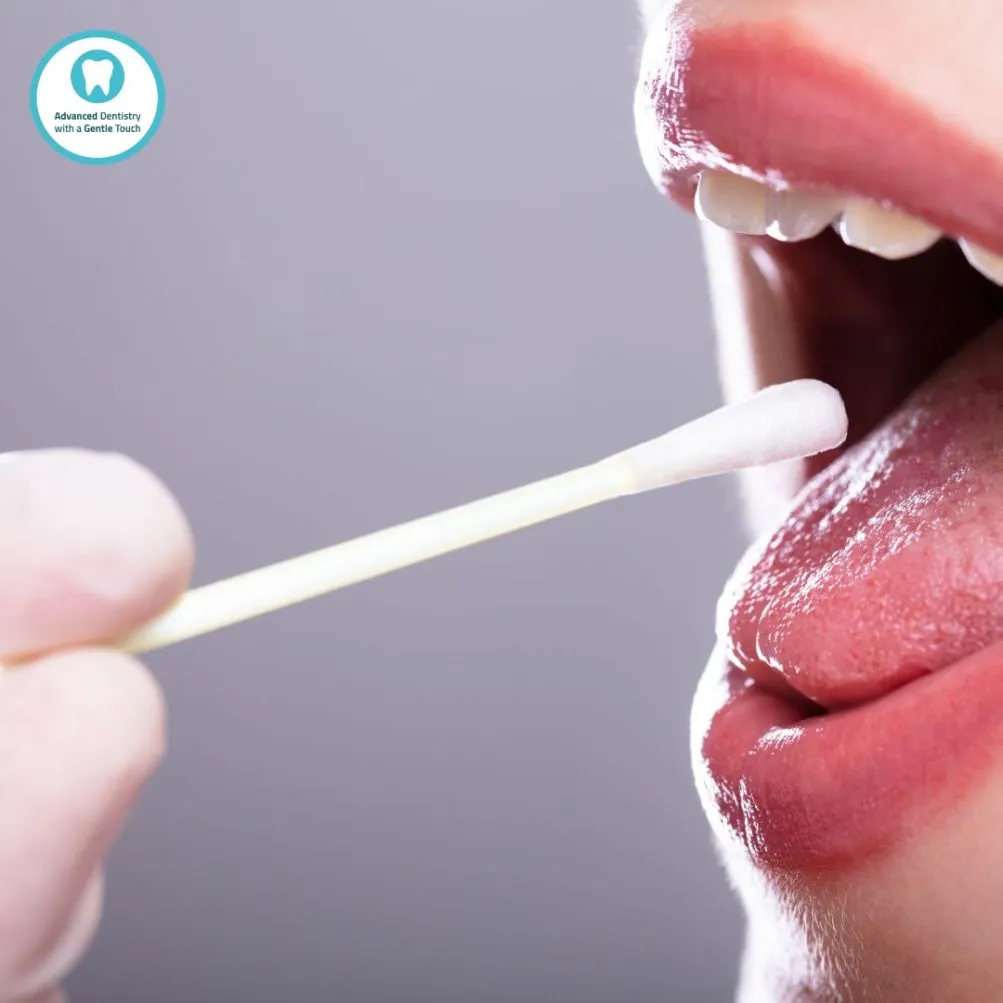
Many people ask this question: How do you cure sticky saliva? Before we answer, let’s talk about the basics of what sticky saliva is and why it matters. Sticky saliva happens when your spit feels thick, gooey, or stringy. You might feel it stuck in your throat, notice white mucus in your mouth, or find it harder to swallow. Sometimes, it can even feel frothy or foamy, especially after meals or at night.
Sticky saliva can cause problems for your oral health. It can trap food particles, leading to bad breath and more plaque on your teeth. Over time, this can increase your risk of tooth decay or gum disease. It might also make simple things like chewing or talking more difficult.
There are different reasons why sticky saliva happens. It could be due to dehydration, certain medications, or medical conditions like dry mouth. Since saliva is important for cleaning your mouth and protecting your teeth, it’s essential to treat sticky saliva early to keep your mouth healthy and avoid future problems.
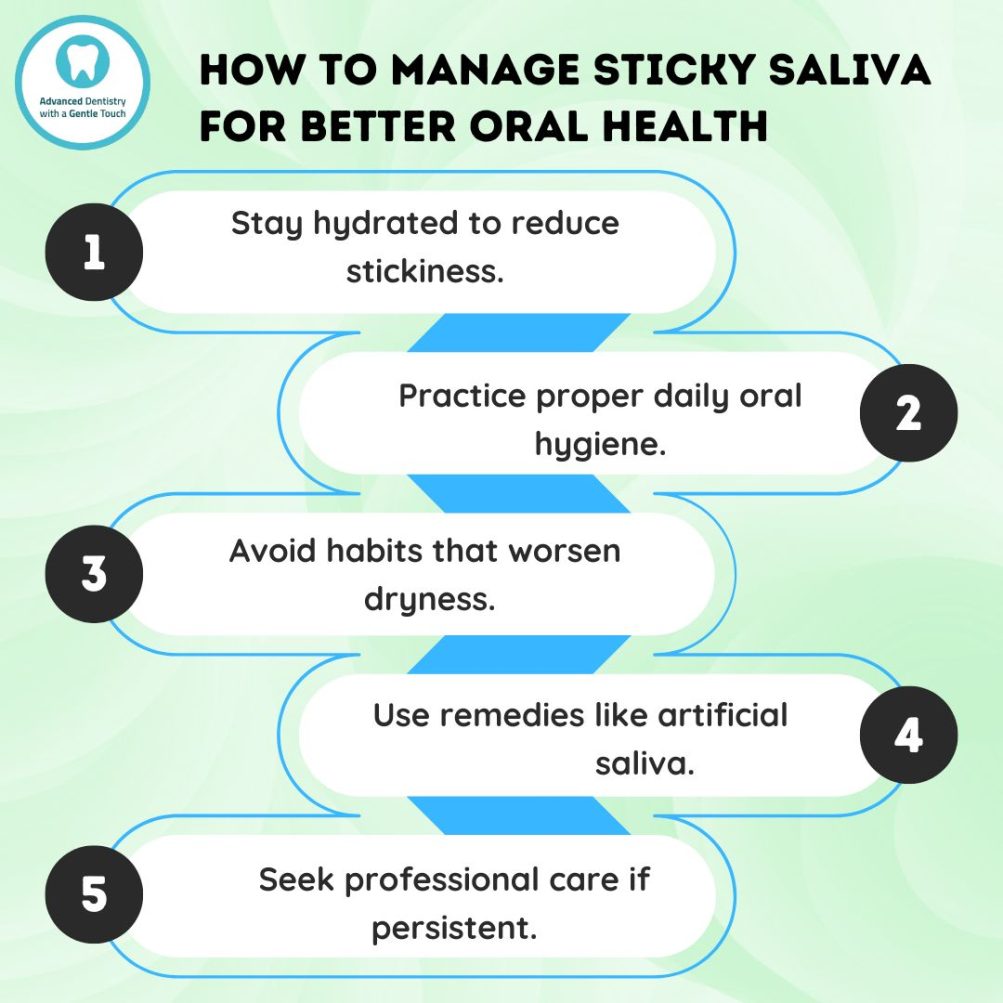
What Causes Sticky Saliva?
Sticky saliva happens when your spit becomes thicker and less fluid, making your mouth feel uncomfortable. Understanding its causes can help you manage it better.
Common Causes of Sticky Saliva
One common cause of sticky saliva is dehydration. When your body lacks water, your saliva can become thicker and harder to swallow. Drinking plenty of fluids can often help improve this.
Medications can also play a role. Drugs like antihistamines, antidepressants, and some blood pressure medications can reduce saliva flow, making it feel sticky or dry. If you’re taking these medications, it’s important to stay hydrated and talk to your doctor about managing side effects.
Certain medical conditions are also linked to sticky saliva. People with dry mouth (xerostomia), diabetes, or Sjögren’s syndrome often experience thick or sticky saliva as a symptom. These conditions affect how much saliva your glands produce, which can lead to discomfort.
Habits like mouth breathing and smoking are other contributors. Mouth breathing, especially during sleep, can dry out your mouth and thicken saliva. Smoking, on the other hand, can irritate your salivary glands and affect saliva production.
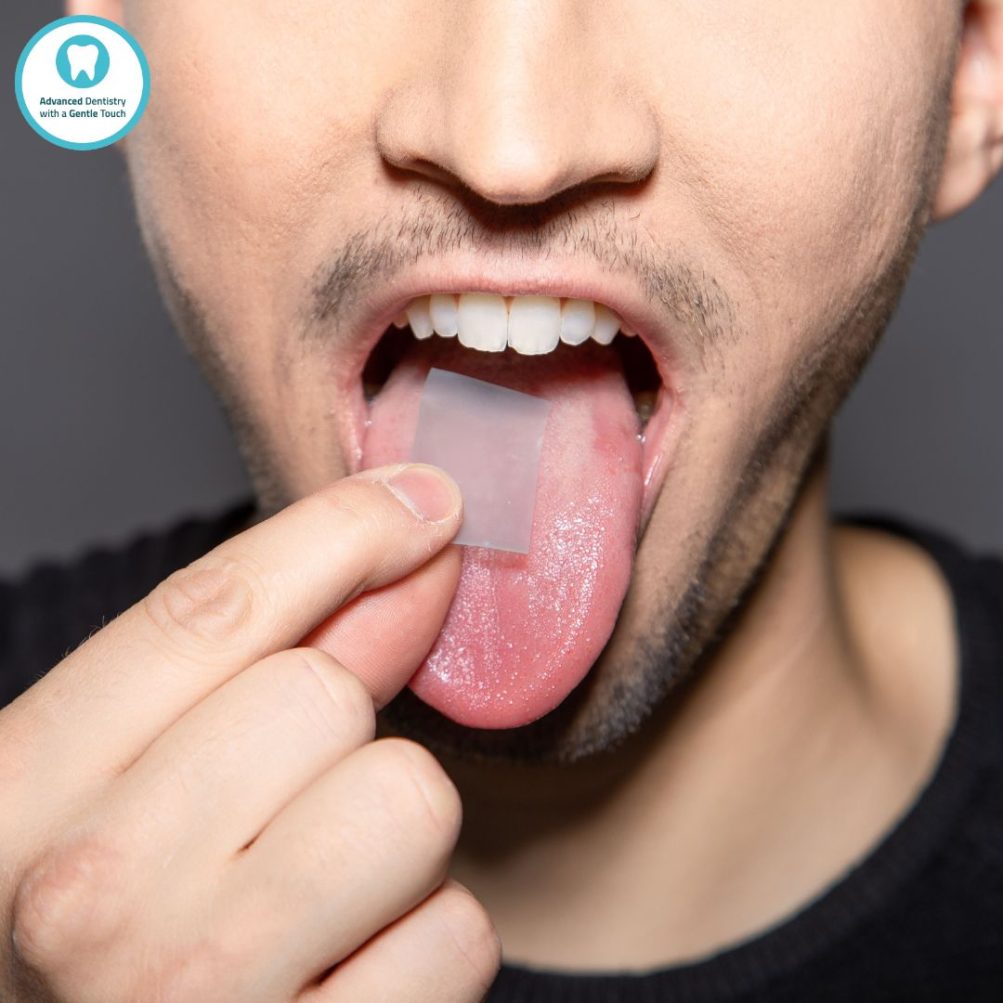
How Sticky Saliva Impacts Oral Health
Sticky saliva can lead to several oral health problems. It reduces saliva’s natural ability to clean your mouth and break down food, which increases the risk of cavities and gum disease.
See also Marty Appreciates Dr. Korwin's Exceptional Services
It can also cause bad breath because food particles and bacteria are not easily washed away. Over time, this can worsen your overall oral health.
Additionally, thick saliva makes chewing and swallowing more difficult, which can affect your nutrition and comfort during meals. Addressing the causes early is essential for maintaining a healthy and comfortable mouth.
How to Manage Sticky Saliva
Sticky saliva can be uncomfortable, but there are simple ways to manage it and keep your mouth healthy.
Stay Hydrated
Drinking plenty of water is the best way to manage sticky saliva. Sip water throughout the day to keep your mouth moist. If needed, add electrolyte drinks to stay hydrated, especially after exercise or illness.
Avoid drinks like coffee and alcohol, as they can make you more dehydrated. If you have them, drink extra water to help balance their effects.
Oral Hygiene Practices
Taking care of your mouth can help with sticky saliva. Brush your teeth twice a day with fluoride toothpaste to keep them clean. Use an alcohol-free mouthwash to freshen your breath without drying out your mouth.
Don’t forget to floss daily. It removes food and plaque between your teeth, which sticky saliva can make worse.
Lifestyle Changes
Making small changes in your habits can also help. Stop smoking and limit alcohol, as they can dry your mouth and make sticky saliva worse.
Chewing sugar-free gum or sucking on sugar-free lozenges can help your mouth make more saliva, keeping it less sticky. Try to avoid salty or sugary foods, as these can make your saliva thicker and less comfortable.
By staying hydrated, keeping your mouth clean, and making healthy choices, you can manage sticky saliva more easily and feel better overall.
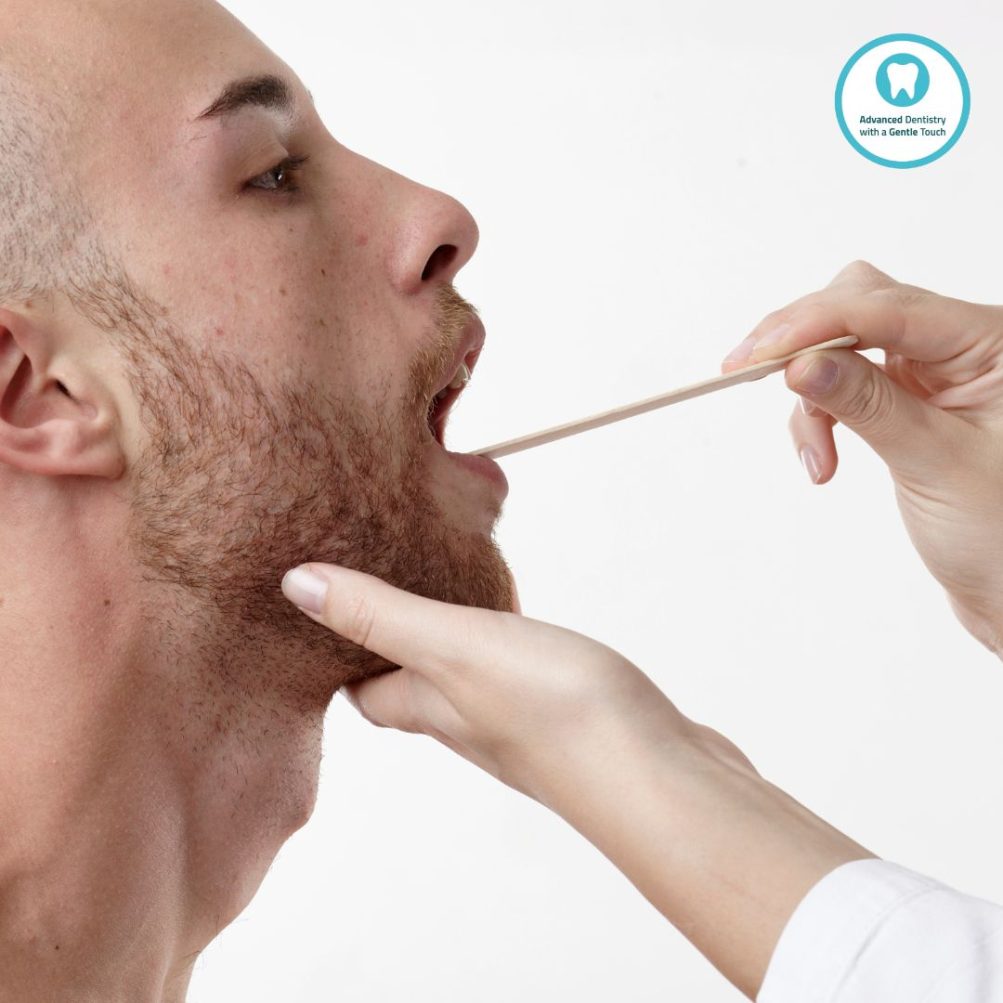
Medical Treatments and Remedies for Sticky Saliva
If sticky saliva is causing problems or won’t go away, there are treatments and remedies that can help.
Over-the-Counter Options
You can find many products at pharmacies to help with sticky saliva. Artificial saliva sprays or substitutes act like natural saliva, making your mouth feel more comfortable. These are great for people with a dry or sticky mouth.
Oral moisturizers and gels are another option. They keep your mouth moist and can quickly ease mild symptoms. These are easy to use and work well for temporary relief.
When to See a Doctor or Dentist
If your sticky saliva doesn’t improve or makes it hard to swallow, it’s time to see a doctor or dentist. Long-lasting symptoms might be a sign of a condition like dry mouth (xerostomia), diabetes, or another issue.
Your dentist can check if your medications are causing the problem. Some medicines, like antihistamines or antidepressants, may reduce saliva. They can suggest changes or ways to manage these side effects. Regular dental visits can also help prevent problems like cavities or gum disease caused by sticky saliva.
Medical Interventions
For more serious cases, a doctor might prescribe medications like pilocarpine or cevimeline to help your mouth produce more saliva. These medicines are especially helpful for conditions like dry mouth.
Dentists can offer fluoride treatments to protect your teeth or make custom mouthguards if grinding your teeth is worsening your symptoms. Seeing a professional ensures you get the right care to feel better.

Dietary Tips for Managing Sticky Saliva
What you eat can play a big role in managing sticky saliva. Making smart food choices can help keep your mouth comfortable and hydrated.
Foods to Eat
Include hydrating foods like cucumbers, watermelon, and celery in your diet. These foods have high water content, which can help reduce dryness in your mouth.
You can also eat foods that stimulate saliva production, such as citrus fruits like oranges or lemons, if you can tolerate them. Crunchy vegetables like carrots and apples are another great option because they encourage your mouth to produce more saliva naturally.
Foods to Avoid
Stay away from salty, spicy, or sugary foods, as these can make your mouth feel even drier. These types of food may irritate your mouth and worsen the sticky sensation.
Also, avoid sticky or hard-to-chew foods like caramels, dried fruits, or tough meats if the thickness of your saliva makes eating uncomfortable. These foods can make chewing and swallowing more difficult, increasing discomfort.
By focusing on hydrating and saliva-stimulating foods while avoiding irritants, you can better manage sticky saliva and improve your oral comfort.
See also Happy Dental Patient at Dr Korwin's
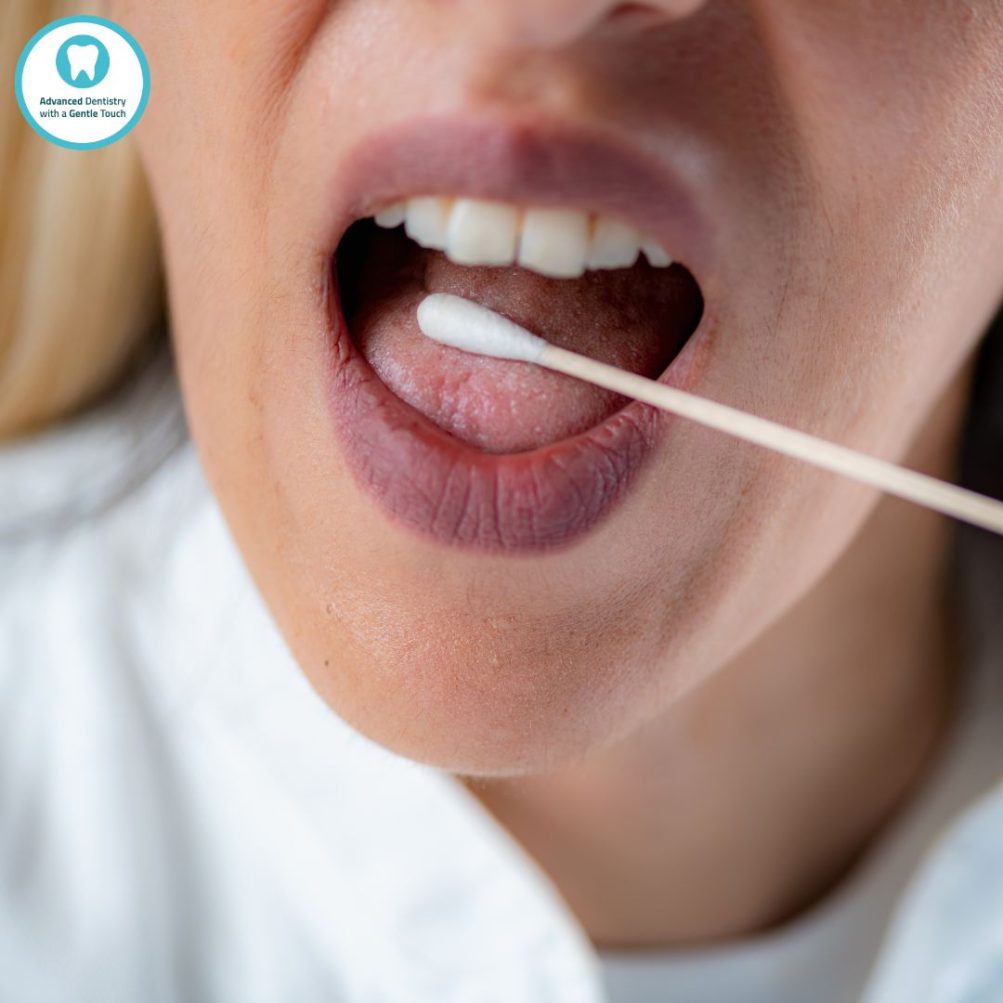
Preventing Sticky Saliva
Taking simple steps every day can help prevent sticky saliva and keep your mouth healthy and comfortable.
Daily Habits to Maintain Oral Moisture
Make sure to drink plenty of water throughout the day to stay hydrated and keep your mouth moist. Good oral hygiene practices, like brushing and flossing daily, also help reduce discomfort and keep your mouth clean.
Using a humidifier at home can add moisture to the air, which is especially helpful during dry seasons or if you sleep with your mouth open. Chewing sugar-free gum regularly is another easy way to stimulate saliva production and keep your mouth from feeling dry.
Early Intervention and Awareness
Pay attention to the early signs of sticky saliva, like a dry or sticky feeling in your mouth. Addressing these symptoms early can help prevent more serious issues, like tooth decay or gum disease.
Regular dental check-ups are key to monitoring your oral health. A dentist can spot problems early and provide advice on managing or preventing sticky saliva. Staying proactive helps you avoid complications and maintain a healthy, comfortable mouth.
Conclusion
Sticky saliva can be uncomfortable, but understanding why it happens and how it affects you can help. It often comes from dehydration, certain medications, or medical conditions like dry mouth. If not managed, sticky saliva can cause problems like bad breath, plaque buildup, and trouble chewing or swallowing.
Luckily, there are easy ways to manage and prevent sticky saliva. Drink plenty of water, keep your teeth clean, and try sugar-free gum to help with saliva flow. If the problem continues, see a dentist to get the right treatment. Taking action early can stop the issue from getting worse.
The future is promising, with new treatments like saliva substitutes and advanced dental tools making it easier to manage dry or sticky saliva. These advancements give hope for even better solutions soon.
Start today by following the tips shared here. If you’re struggling, don’t hesitate to seek professional help. Regular dental check-ups and small daily habits can make a big difference. Take care of your mouth now to stay healthy and comfortable in the future!
